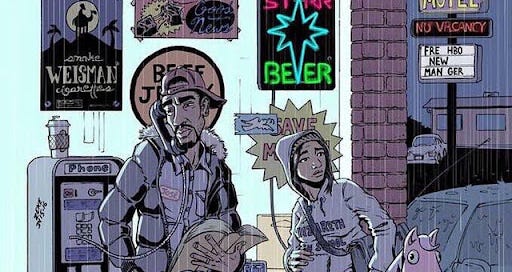Earlier this month, I was asked to create a reading based on Philippians 2:5-8. The theme was simply “love all” and the task was to read it on one of the Advent Sundays before lighting the third advent candle.
It’s funny to me what writing connects with people. Although I thought about what I wrote for a while, the actual piece was thrown together between frantic work sessions because I was already three days behind their deadline and they needed something from me.
When I wrote it, I felt meh. It was a “good enough, I guess” piece and I read it with that expectation. I think the overwhelmingly positive response it has is proof that when you write about true things, there is a power that can transcend even the worst procrastination.
Since a number of people have asked for it, I’m posting it here. I’m looking forward to writing more in the new year, with a lot of projects in the works. Have a great Christmas and New Years!
Love all: an advent reading by C.C. Kimmel
Love all. Sounds nice, I guess. Like a line in a cheap holiday movie, one where the small town mechanic finally woos the big city marketing exec into love at Christmas time. As they embrace, the sickly nephew that the small town mechanic has sworn to protect walks out from behind a tree, maybe with a crutch and declares, “See, Christmas is a time to love all.” And then the characters dance while the credits roll. Not to be cheap with the statement. I really do think it sounds nice. And it is good. We have been loved, so therefore we ought to love all. But, as it turns out, “all” happens to include the guy with the oversized truck who cut me off earlier this week and the people who bring kale chips to a Super Bowl party. All doesn’t just include the best of us, but the worst of us. The corrupt executive, the bully, the murderer, the oppressor. The men and women who prey upon the weak without an ounce of love in their own heart. The owners of destructive trigger fingers. The email sender who lays off thousands to protect corporate profits. The villains. That is the challenge with the word “all.” It’s both inclusive and exhaustive. A superlative of words like “some” and “many” and “most.” It’s unforgiving by definition, since the moment something is subtracted from “all”, it is no longer “all.” To be honest, “love all” doesn’t sound all that nice when I think about it a little bit more. The fact that “all” isn’t just the abused, but the abuser; not just the oppressed, but the oppressor; not just the broken and maimed and weak and vulnerable, but the forceful tyrant. I’d rather stick with “love some.” Or, if I’m feeling generous, “love most.” But not “all”. Except, when Jesus tells Nicodemus that “God loves the world” he leaves out any qualifiers. It’s not some of the world, or most of the world. It’s the world, all of the world. The implicit “all” that puts so much of our well-intended charity and kindness to shame. Over and over again, it is made clear that Jesus braves the all-inclusive “all” when it comes to his love and sacrifice. That the baby born in Bethlehem was a light not just to the Jews, but to the Gentiles; not just some of the world, but all of the world. I think we need more than the “love all” of cheap holiday movies. We need the true story, where a poor, terrified mom gives birth to a helpless baby in the worst part of an occupied small town. The story where, despite everything, love goes out to “all” of the world with no exceptions. Though hunted and rejected, though beaten and abandoned, his love of “all” is never compromised. To love all means to love the storm as much as the rainbow. To love the villain as much as the hero. To love all means to love like Christ, who, though God, emptied himself, became a servant, and died for all. If Jesus died the big death for all, I hope, with his power, I can die the many small deaths to truly love all as well.




